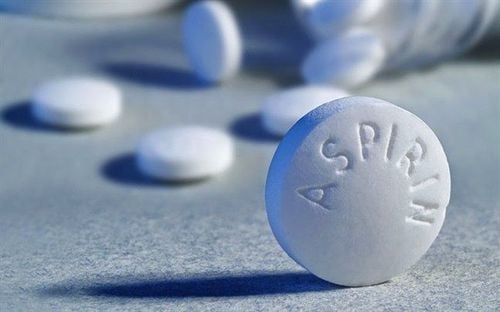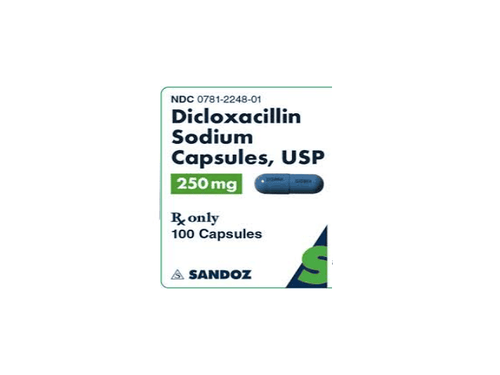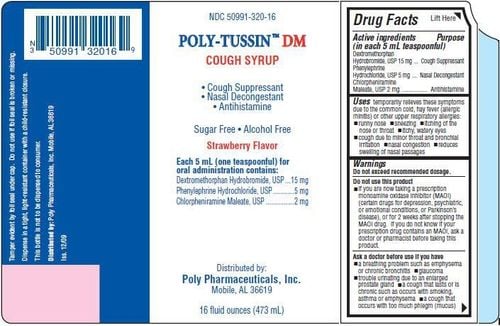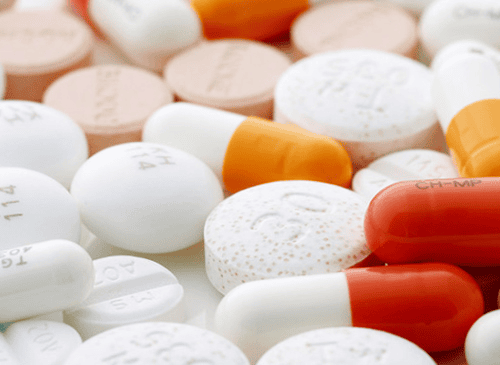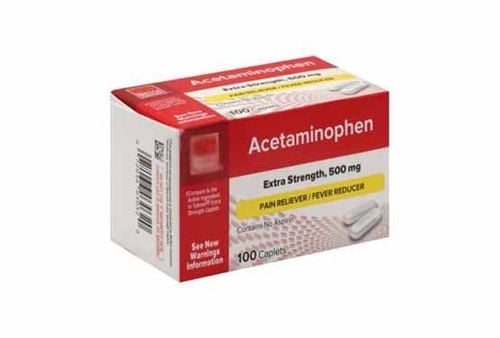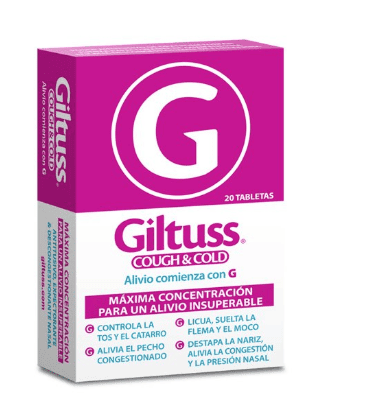This is an automatically translated article.
Hycofenix is used for the temporary treatment of cough, chest congestion, and nasal congestion caused by the common cold, flu, or other respiratory conditions such as sinusitis or bronchitis. Here is some essential information about Hycofenix1. Uses of Hycofenix
This combination medicine is used to temporarily treat the symptoms of cough, chest congestion, and stuffy nose caused by the common cold, flu, or other respiratory illnesses (e.g., sinusitis, bronchitis). Guaifenesin is an expectorant that thins and loosens mucus in the lungs, making it easier to cough up mucus. Decongestants help relieve symptoms of nasal congestion. This product also contains an opioid (antitussive) cough suppressant that affects a certain part of the brain, reducing the urge to cough. It is not generally used for persistent coughs caused by smoking, asthma, other persistent breathing problems (e.g., emphysema), or coughs with a lot of mucus unless directed by your doctor. doctor. Cough suppressants should not be given to children under 18 years of age with opioid cough suppressants. Children are at higher risk of serious side effects (even death), especially breathing problems. Talk to your doctor about the risks and benefits of the medication. Cold and cold products do not cure colds. Coughs caused by the common cold usually do not require medical treatment. Ask your doctor or pharmacist about other ways to relieve cough and cold symptoms, such as drinking enough fluids, using a humidifier, or saline nasal drops/spray.2. How to use Hycofenix
You should read the instructions carefully before you start using this product. If you have any questions, ask your doctor or pharmacist.May be taken with a full glass of water (8 ounces or 240 milliliters) or as directed by your doctor. The medicine can be taken with food if stomach upset. Drink plenty of fluids while you are taking this medicine unless otherwise directed by your doctor. The fluid will help loosen the mucus in your lungs.
If you are using the liquid form, use a measuring device or spoon to carefully measure the prescribed dose. Do not use a household spoon as you may not be able to determine the exact dose. If your liquid form is a suspension, shake the bottle well before each dose.
3. Dosage of drugs used
Dosage is based on your medical condition and response to treatment. Do not increase your dose or use this product more often or for longer than prescribed. Your condition will not improve any faster and your risk of side effects will increase.If you suddenly stop using the drug, you may have withdrawal symptoms (such as restlessness, watery eyes, runny nose, nausea, sweating, muscle aches). To help prevent withdrawal, your doctor may reduce your dose slowly. You are more likely to experience withdrawal if you have been using it regularly for a long time (more than a few weeks) or in high doses. Tell your doctor or pharmacist right away if you stop using the medicine.
Although it helps many people, this product carries the risk of abuse and can sometimes be addictive. This risk may be higher if you have a substance use disorder (such as drug/alcohol abuse or addiction). Take this product exactly as prescribed to reduce the risk of addiction. Ask your doctor or pharmacist for more details.
When used for a long time, the medicine may not work as well and may require different dosages. Talk to your doctor if the medicine stops working well.
Tell your doctor if your cough does not improve in 5 days. Also, tell your doctor if your condition gets worse or if you develop a fever, rash, or persistent headache. These could be symptoms of a serious medical problem and should be checked by a doctor.

Thuốc Hycofenix có thể gây triệu chứng cai nghiện nếu đột ngột dừng uống
4. Side effects
Dizziness, drowsiness, headache, abdominal pain, nausea, constipation, nervousness, or trouble sleeping may occur. If any of these effects persist or get worse, contact your doctor or pharmacist right away.Remember that your doctor has prescribed the medicine because he or she has judged that the benefit to you outweighs the risk of side effects. Many people who use the drug have no serious side effects.
Tell your doctor right away if you have any serious side effects, including: interrupted breathing during sleep (sleep apnea), mental/mood changes (e.g., hallucinations) feeling), tremors, difficulty urinating, weakness, fast/irregular heartbeat.
Call for medical help right away if you have any very serious side effects, including: Convulsions .
This product may cause serious mental/mood changes and very serious (rarely fatal) breathing problems. This product may contain codeine or dihydrocodeine. Codeine and dihydrocodeine are converted into strong opioid drugs (morphine or dihydromorphine) in your body. In some people, this happens more quickly and completely than usual, which increases the risk of very serious side effects. Call for medical help right away if you notice any of the following: Slow/shallow breathing, severe drowsiness/difficulty waking, confusion.
A very serious allergic reaction to the drug is very rare. However, get medical help right away if you notice any symptoms of a serious allergic reaction, including: Rash, itching/swelling (especially of the face/tongue/throat), severe dizziness, trouble breathing.
5. Precautions
Before taking medicine, tell your doctor or pharmacist if you are allergic to it; or if you have any other allergies. This product may contain inactive ingredients, which may cause allergic reactions or other problems. Talk to your pharmacist for more details.Before using this medicine, tell your doctor or pharmacist your medical history, especially of: abdominal problems (e.g., chronic constipation, bowel obstruction, gallbladder disease, pancreatitis) , adrenal gland problems (e.g., Addison's disease), blood vessel problems (e.g., Raynaud's disease, low blood flow to the brain/legs/hands), certain brain disorders (eg: Head injury, tumor, increased pressure in the brain, seizures), breathing problems (e.g., Asthma, emphysema, sleep apnea), diabetes, glaucoma, problems heart problems, high blood pressure, kidney problems, liver disease, mental/mood problems (e.g., Depression, psychosis), thyroid problems (e.g., hyperthyroidism) hypothyroidism), difficulty urinating (eg, due to an enlarged prostate), personal or family history of substance use disorders (such as drug/alcohol abuse or addiction), obesity enlarged.
The drug may make you dizzy or drowsy. Alcohol or marijuana (marijuana) can make you more dizzy or drowsy. Do not drive, use machinery, or do anything that requires alertness until you can do it safely. Avoid alcoholic beverages. Talk to your doctor if you are using marijuana (marijuana).
To reduce dizziness and lightheadedness, get up slowly when getting up from a sitting or lying position.

Tránh sử dụng đồ uống có cồn khi đang dùng thuốc Hycofenix
Medicines may contain sugar and/or alcohol. Caution is advised if you have diabetes, alcoholism or liver disease. Ask your doctor or pharmacist about the safe use of this product.
Before surgery, tell your doctor or dentist that you are taking medication.
Older adults may be more sensitive to the side effects of the drug, especially confusion, dizziness, drowsiness, slow/shallow breathing, fast/irregular heartbeat, problems urinating, or trouble sleeping .
Tell your doctor if you are pregnant or think you may be pregnant. During pregnancy, this product is not recommended. It can harm an unborn baby. Talk to your doctor about the risks and benefits of the medication. See also the Warnings section.
This product may pass into breast milk and may have undesirable effects on a nursing infant (such as unusual sleepiness, difficulty feeding, trouble breathing, or unusual limping). Breast-feeding while using this product is not recommended. Consult your doctor before breastfeeding.
6. Drug interactions
Drug interactions can change the way a drug works or increase the risk of serious side effects. This document does not cover all possible drug interactions. Keep a list of all the products you use (including prescription/nonprescription drugs and herbal products) and share it with your doctor and pharmacist. Do not start, stop, or change the dose of any medicine without your doctor's approval.Some products that may interact with the drug include: other anticholinergics (e.g. belladonna alkaloids), beta blockers (e.g. metoprolol, atenolol), cimetidine, certain high blood pressure medicines (guanethidine) , methyldopa), naltrexone, tricyclic antidepressants (eg, amitriptyline, desipramine).
Taking MAO inhibitors with medications can cause serious (possibly fatal) drug interactions. Avoid taking MAO inhibitors (isocarboxazid, linezolid, methylene blue, moclobemide, phenelzine, procarbazine, rasagiline, safinamide, selegiline, tranylcypromine) during drug therapy. Most MAO inhibitors are also not recommended for two weeks prior to drug therapy. Ask your doctor when to start or stop taking the medicine.
The risk of serious side effects (such as slow/shallow breathing, severe drowsiness/dizziness) may be increased if the medicine is taken with other products that can also cause drowsiness or other problems. respiratory problem. Tell your doctor or pharmacist if you are taking other products such as other opioid pain relievers or cough suppressants (such as codeine, hydrocodone), alcohol, marijuana (marijuana), sleeping or anxiety medications (such as alprazolam, lorazepam, zolpidem), muscle relaxants (such as carisoprodol, cyclobenzaprine), or antihistamines (such as cetirizine, diphenhydramine).
Guaifenesin and decongestants are available in both prescription and over-the-counter products. Check the labels on all your medicines carefully to make sure you are not taking more than one product that contains these ingredients.
Check the labels on all your medicines (such as allergy or cough and cold products, diet aids) as they may contain ingredients that cause drowsiness or affect heart rate / your blood pressure. Ask your pharmacist about using these products safely.
Other drugs may affect the removal of this product from your body, which may affect how this product works. Examples include azole antifungals (such as ketoconazole), bupropion, fluoxetine, macrolide antibiotics (such as erythromycin), HIV medications (such as ritonavir), paroxetine, quinidine, rifamycins (such as rifabutin, rifampin), certain medications used to treat seizures (such as carbamazepine, phenytoin), among others.
The drug may interfere with certain laboratory urine tests (e.g. 5-HIAA level, VMA level, amylase/lipase level), possibly causing false test results. Make sure laboratory staff and all your doctors know you are using the medicine.

Thuốc Hycofenix có thể gay ảnh hưởng đến kết quả một số xét nghiệm nước tiểu
7. Drug overdose
If someone has overdosed and has severe symptoms such as passing out or having trouble breathing, call 911 immediately. Overdose symptoms may include: Confusion, cold/clammy skin, fast/irregular heartbeat, slow/shallow breathing, seizures, coma.8. Missed dose
If you are prescribed a medication on a regular schedule and miss a dose, take it as soon as you remember. If it is almost time for your next dose, skip the missed dose. Please continue your work at a normal time. Don't double the dose to catch up.9. Storage
Store at room temperature, away from light and moisture. Do not store in the bathroom. Keep all medications away from children and pets.Do not flush medication down the toilet or down the drain unless instructed to do so. Dispose of this product appropriately when it has expired or is no longer needed. Consult your pharmacist or local waste disposal company.
Please dial HOTLINE for more information or register for an appointment HERE. Download MyVinmec app to make appointments faster and to manage your bookings easily.
Reference source: webmd.com



